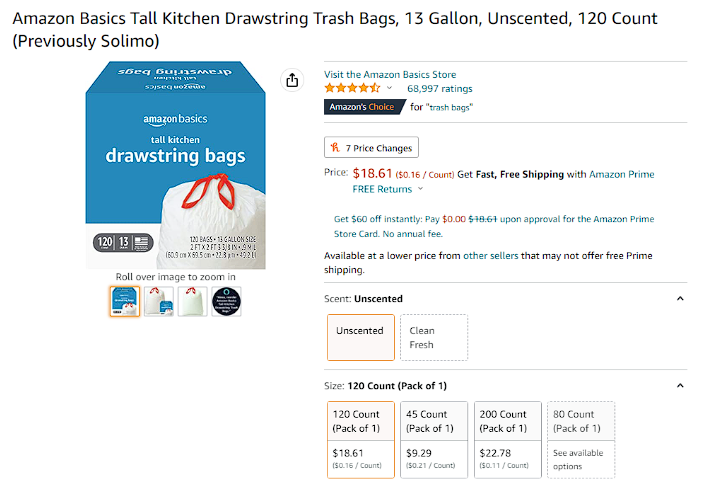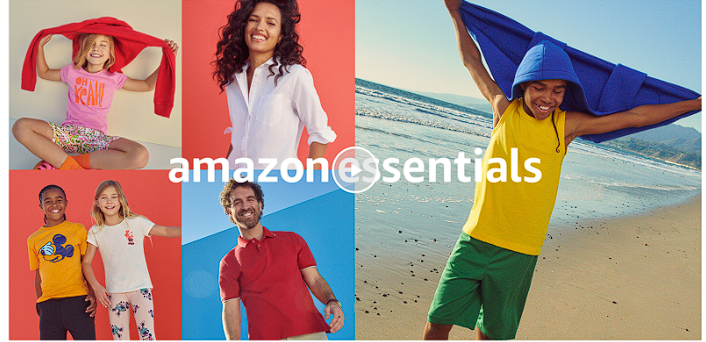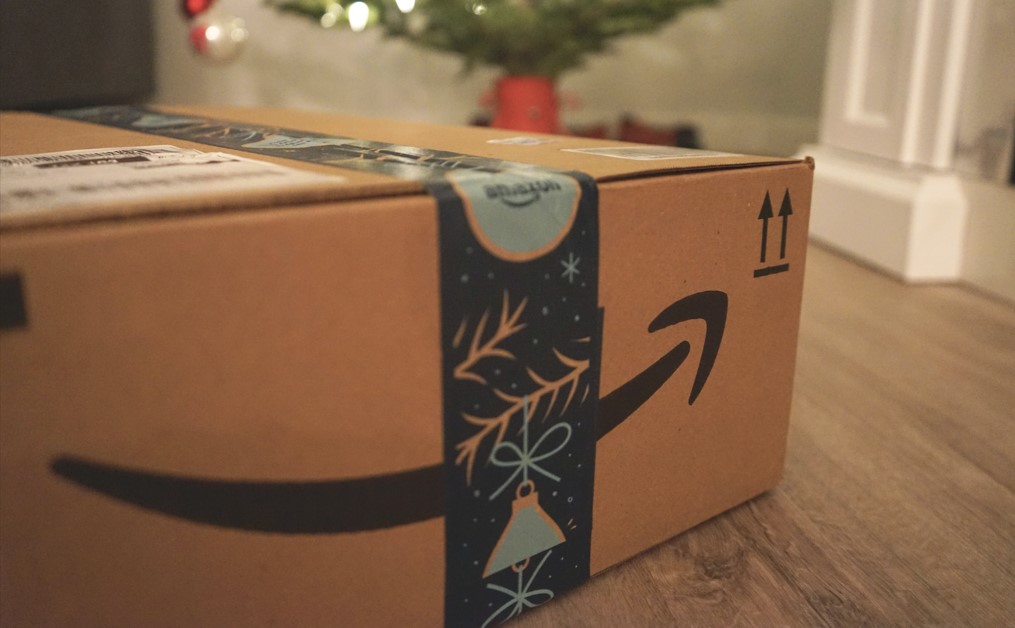
You’ve probably bought a private-label item on Amazon and didn’t even know it. Selling Amazon private label FBA products is considered one of the most popular business models for Amazon sellers. In fact, more than half of Amazon sellers use private labels, and Amazon itself owns over 100 private label brands
Amazon FBA private label can be profitable and rewarding with the right strategy. So what goes into selling private label products through Amazon FBA?
Let’s take a look.
Table of Contents
What is Amazon FBA Private Label?
Selling Amazon private label involves the purchasing of products made from a third-party manufacturer and selling them under another brand name on the Amazon marketplace. Sellers brand and market these products as their own without being involved in the manufacturing process.
Now what does Amazon FBA have to do with it?
Amazon sellers can use FBA as their choice of fulfillment for their orders. Companies send their products to Amazon fulfillment centers, and Amazon will take care of packaging and shipping when customers purchase the items. They also offer customer service and handle returns for a small fee.
Some perks that come with Amazon FBA are:
- Access to other consumers and audience worldwide
- Trained customer services and return representatives
- Two-day shipping through Amazon Prime
- Take advantage of the Amazon Buy Box, making it easier for consumers to buy your product
Amazon Private Label Product Example

AmazonBasic is one of the most profitable private labels on the platform with a market share of 57.8%.
The Pros and Cons of Amazon FBA Private Label
The Amazon FBA Private Label program allows entrepreneurs to create and sell their products on Amazon, but as with any business model, there are pros and cons to consider.
Benefits of Private Label FBA
- Sellers can create a unique brand and product line without having to manufacture the product themselves.
- No overhead costs associated with sourcing, stocking, and shipping inventory.
- Flexible pricing structure allows sellers to price their products competitively.
- Access to Amazon’s millions of customers and global distribution network.
- Amazon provides customer service and handles returns on behalf of the seller.
- Control over content and product listings.
Challenges of Private Label FBA
- Competition is fierce on the Amazon marketplace.
- Amazon’s fees and commissions can impact profits.
- Sellers must abide by Amazon’s rules and regulations to maintain their seller account.
- Amazon can change its policies anytime, which could impact the seller’s business.
- It can be hard to find a reputable manufacturer or supplier.
How to Sell Private Label Products
Here’s how to successfully start selling private label products on Amazon.
1. Conduct Product Research
It’s important not to pick a product simply because you enjoy it: select the best product based on data when deciding which product to sell. You can begin brainstorming ideas based on your hobbies, but make sure to validate those ideas by checking how similar products are doing on Amazon and what the competition is like.
You’ll also need to make sure that you can find a manufacturer to supply the products you plan to private label.
2. Find a Reliable Manufacturer & Get Product Samples
Once you have identified the perfect item to sell on Amazon, you should contact multiple suppliers and ask for samples so you can compare prices and product quality. Make sure the manufacturer has several satisfied customers that have had success selling his or her products.
Once you have determined the best supplier for your product, it’s time to negotiate the terms of the sale. Your manufacturer might have a minimum order quantity, so it’s important to make sure you can afford the initial investment–even before you make any sales.
3. Create a Design and Packaging for Your Products
Branding is essential when it comes to private labeling. You must make sure that your product is distinct from your competitors and that consumers can easily recognize it. Create a brand with a fun and unified color scheme, and design a unique, memorable logo. Choose fonts that are easy to read and fit the overall branding design. Most importantly, remember to think from the consumer’s perspective. It’s not about what you like. It’s about what your customers like. Make sure your branding is attractive to them to draw them to your product.
4. Optimize Your Product Listings
When it comes to selling products online on any platform, optimizing product listings is crucial to increase the chances of a successful sale. It is important to provide customers with accurate descriptions and pictures of the product so they can be sure they are investing in a product of good quality from your brand. You should also optimize your product listing using keywords relevant to your product. It would also help to consider using Amazon’s FBA private label tools to customize your product’s packaging and branding.
Sellesta is a helpful tool that can assist you in achieving these objectives. It utilizes advanced AI and predictive analytics to build SEO-friendly product listings aimed at conversion and created to maximize your profits.
5. Choose Your Fulfillment Method
Even though you plan on using FBA as your fulfillment method, there are other options that you can use when selling private label.
- Fulfillment by Merchant, or FBM: If you select Fulfillment by Merchant (FBM), you will be responsible for managing and shipping all your products on your own, with the help of a third party. Despite this method, you can still take advantage of the one-day or two-day shipping options offered by Fulfillment by Amazon. Furthermore, you can configure your shipping rates and prices for your listings – this is especially useful when shipping out larger items to customers.
- Multi-channel Fulfillment: Amazon Multi-Channel Fulfillment (MCF) is a cost-effective, reliable way to fulfill orders placed on sales channels other than the Amazon website. By storing your inventory in an Amazon fulfillment center, MCF takes care of the picking, packing, and shipping orders directly to customers. This service is similar to FBA but applies to orders made on sales channels outside of Amazon. You don’t need to be an Amazon seller to take advantage of MCF.
- Dropshipping: Dropshipping is when sellers send products straight to buyers on behalf of the producer or supplier. In simpler terms, when a customer orders an item from a dropshipping store, the seller will contact the supplier to assemble and mail the order directly to the customer.
While you can use various methods to complete your orders and get your products to consumers, FBA, or Fulfillment by Amazon offers the comfort of knowing that your products are all in one place and can be shipped out within one to two days.
6. Launch & Market Your Product
The last step is to launch your product on Amazon and start selling. But it’s not just a matter of listing and waiting for your sales. You must have a product launch and marketing plan to get people aware of the product and get traffic and conversions.
You need to advertise your products to your target audience. You can do this by running PPC campaigns, promoting on your social media, and making sure that your product listings follow the Amazon SEO guidelines.
Amazon Private Label FAQs

How many private label sellers are on Amazon?
There are currently over 2 million private-label sellers on Amazon. With so many private label sellers on the platform, many products are available for customers. As an Amazon FBA private label seller, ensuring your products stand out from the competition and are properly marketed to maintain a competitive edge is important.
Utilizing the right SEO strategies, such as keyword research, content and search term optimization, backlinking, and more, can help your product listings remain visible in Amazon’s search results, boosting your sales and revenue.
Is Amazon FBA private label profitable?
Yes, Amazon FBA private label can be a highly profitable business model. With the right product, pricing, and marketing strategies, Amazon private label sellers can see impressive returns and even establish their brand.
Private labeling on Amazon provides an excellent opportunity to take advantage of Amazon’s huge customer base and selling platform. With the right research and planning, private label sellers can create products that appeal to Amazon’s customers and enjoy profits from their sales.
Are there Amazon private label requirements?
Amazon requires that:
- All products need to be professionally packaged with accurate weight, title, etc.
- Private label products must be sold exclusively on Amazon.
- All private label products must have accurate product listings.
- Product listing for private label items must have high quality images and videos.
- Each private label product must comply with all laws and regulations.
- Any unsafe or improperly labeled items will result in Amazon sending a warning or removing your product from the platform.
Is Amazon FBA Private Label Worth It?
Selling private label with Amazon FBA can be a great way to launch a product without paying upfront costs of having inventory. It can also help you form your brand identity and reach more customers.
However, it’s important to remember that Amazon FBA Private Label requires lots of hard work and commitment to succeed. You’ll need to craft a good listing, keep an eye on the market, and advertise your product. Plus, you should factor in the costs of Amazon FBA, which may include fees for listing, fulfillment, and storage.
No matter if you choose Amazon private labeling or another selling method, one of the keys to success is getting your product in front of customers by capitalizing on Amazon SEO. Optimizing your product listings allows you to get your product to rank higher in the search results. Using popular keywords associated with your products and adding them to your product description and bullet points. Optimizing your listing also means having high-quality images and videos showing the product’s dimensions, make, and model.
The best (and easiest) way to do that? Using Sellesta This software-as-a-service can help you improve your product listings with data-driven keyword suggestions for bullet points, titles, and descriptions.
By reviewing customer feedback, Sellesta can let you know what your consumers like and don’t like so you can learn how to provide a better customer experience. It also allows you to do a competitive analysis to see how your competitors score on their product listings so you can understand where you stand against the competition and adjust your strategy to win more sales.
Sellesta is perfect for sellers looking to optimize their listings in bulk and improve their visibility on Amazon.


